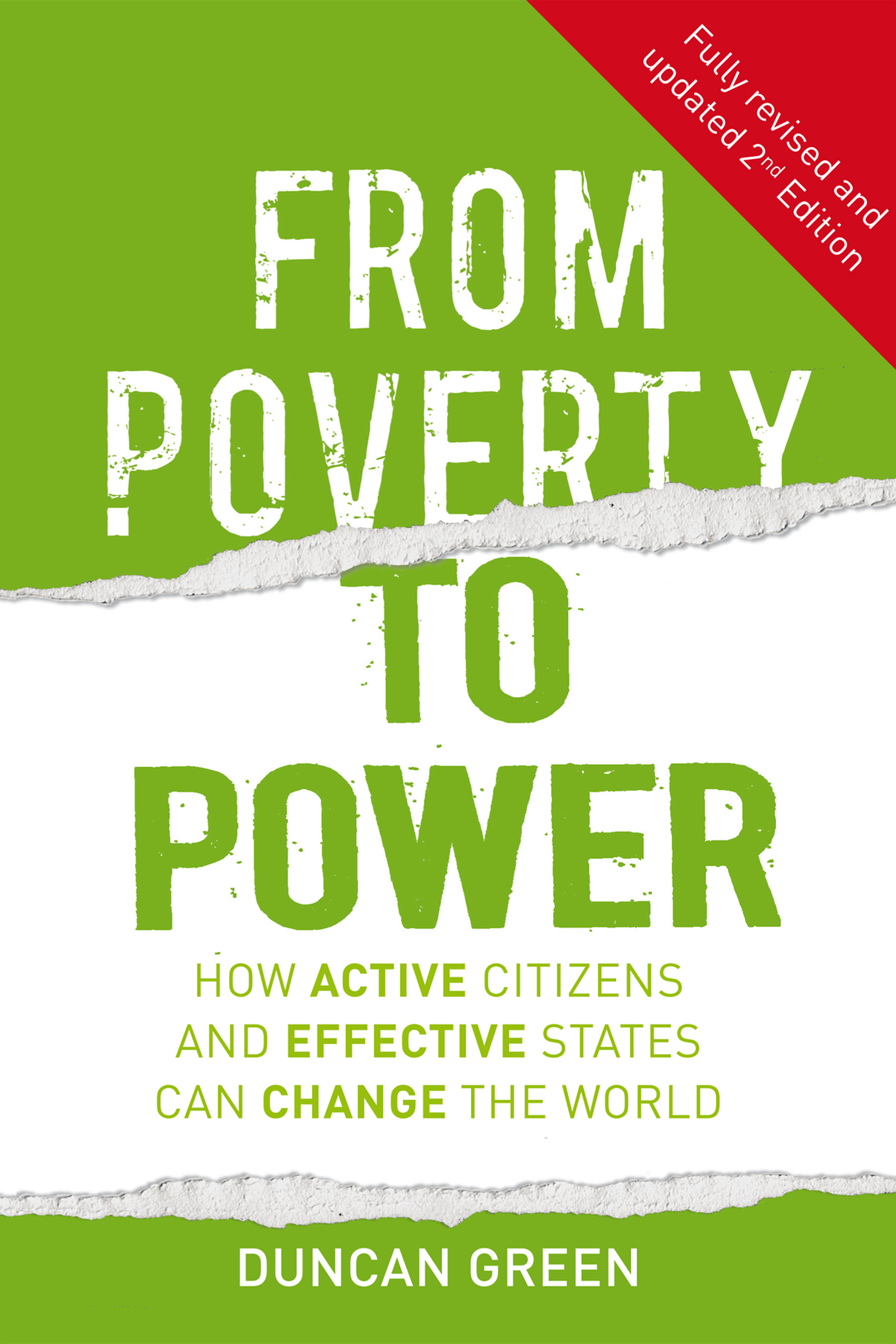From Poverty to Power: How Active Citizens and Effective States Can Change the World
Image

SummaryText
From Poverty to Power examines the change processes that affect development in the 21st century. It highlights "the central role of effective states and active citizens in bringing about genuine human development, and the primacy of 'the national' in development, compared to an often exaggerated emphasis on 'the international'."
Published in 2008, the first edition of the book - click here to access it in PDF format (540 pages) - is intended to provide critical insights into the human and economic costs of inequality and poverty and propose realistic solutions. It recommends: 1) active citizenry to give people living in poverty a voice in deciding their own destiny, fighting for rights and justice in their own society, and holding states and the private sector to account; and 2) effective nation states, because of the need for a state structure that can actively manage the development process. Sections include the following:
Sections include the following:
Published in 2008, the first edition of the book - click here to access it in PDF format (540 pages) - is intended to provide critical insights into the human and economic costs of inequality and poverty and propose realistic solutions. It recommends: 1) active citizenry to give people living in poverty a voice in deciding their own destiny, fighting for rights and justice in their own society, and holding states and the private sector to account; and 2) effective nation states, because of the need for a state structure that can actively manage the development process. Sections include the following:
- An Introduction on the Unequal World
- Power and Politics
- Poverty and Wealth
- Risk and Vulnerability
- The International System
- Conclusion
- Annex: How Change Happens
Sections include the following:
- Part I: Introduction
- Part II: Power and Politics
- Part III: Poverty and Wealth
- Part IV: Human Security
- Part V: The International System
- Part VI: The Food and Financial Crises of 2008-11
- Part VII: Conclusion
Publication Date
Number of Pages
488
Source
e-CIVICUS Issue No. 399, July 6 2008; and Oxfam website, November 28 2016.
- Log in to post comments
